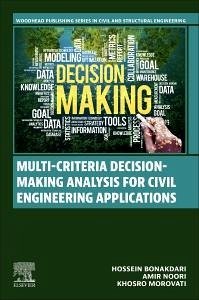
Multicriteria Decision-Making Analysis for Civil Engineering Applications

PAYBACK Punkte
137 °P sammeln!
Decision-making is a key factor to achieve success in any discipline, especially in a field like civil engineering, which is based on calculations and requires large amounts of information being taken into account. Most processes and procedures are a compendium of many different tasks and requirements specific to each project under development, and making decisions in such environments can often be an arduous endeavor. That is why the need for analytical criteria capable of assisting with untangling complex scenarios has arisen preponderantly. As an all-encompassing resource, Multicriteria Dec...
Decision-making is a key factor to achieve success in any discipline, especially in a field like civil engineering, which is based on calculations and requires large amounts of information being taken into account. Most processes and procedures are a compendium of many different tasks and requirements specific to each project under development, and making decisions in such environments can often be an arduous endeavor. That is why the need for analytical criteria capable of assisting with untangling complex scenarios has arisen preponderantly. As an all-encompassing resource, Multicriteria Decision-Making Analysis for Civil Engineering Applications facilitates civil engineers by outlining state-of-the-art techniques for quantitative decision-making to optimally select the appropriate approach when faced with operational issues or to prioritize among multiple options. Authored by recognized experts in the field, this book proves to be a balanced reference volume that is essential not just for civil engineers, but also for a wide variety of audiences in interconnected disciplines.






![The Encyclopaedia of Municipal and Sanitary Engineering [electronic Resource]: a Handy Working Guide in All Matters Connected With Municipal and Sanit Cover The Encyclopaedia of Municipal and Sanitary Engineering [electronic Resource]: a Handy Working Guide in All Matters Connected With Municipal and Sanit](https://bilder.buecher.de/produkte/65/65530/65530572n.jpg)






